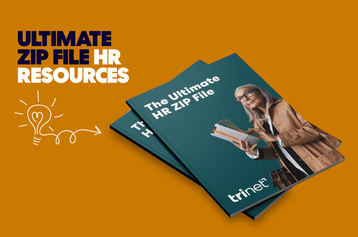
A paid family leave law described as one of the most generous in the country goes into effect for Connecticut workers on January 1, 2022. Workers will be able to take 12 weeks of paid leave in 12 months for personal and family health needs. Connecticut presently provides 16 weeks of unpaid leave over 2 years for employees that have worked 1,250 hours in a year. In general, private sector employers with fewer than 75 employees are exempt as are state and municipal employers. In expanding the coverage available under the state’s existing Family and Medical Leave Act, the new law — the “Paid Family and Medical Leave Act” (PFMLA) — applies to a wider range of employers and increases the amount of allowed leave. It also expands the reasons for which employees can take leave and, most importantly, converts the work time off from unpaid to paid leave. The PFMLA also provides a wider range of benefits than the federal Family and Medical Leave Act (FMLA). The FMLA guarantees up to 12 weeks of unpaid leave but only applies to companies with 50 or more employees. Constitution state workers can submit applications for paid leave benefits starting this fall and winter.
The “Paid Family and Medical Leave Act” (PFMLA) applies to a wider range of employers and increases the amount of allowed leave. It also expands the reasons for which employees can take leave and, most importantly, converts the work time off from unpaid to paid leave.
Covered employers
The PFMLA applies to most employers. Private sector organizations with one or more employees working in Connecticut, except those in private elementary or secondary schools, must comply, according to an employer toolkit. This includes employers located outside the state with employees in Connecticut who work remotely. Eligibility is based on where people work, not where they live. In addition, exemptions are available for employers that already offer the same rights and benefits.
Amount of allowed leave
Workers can take up to 12 weeks of paid leave in a 12-month period. An additional 2 weeks is available for pregnancy-related issues such as a serious health condition that results in incapacitation during pregnancy.
Eligible workers
Employees can meet the eligibility requirements in 2 ways:
- Employees working in Connecticut are eligible for benefits if they have earned at least $2,325 during the base period. The base period is the first 4 of the 5 most recently completed quarters. In addition, workers must be currently employed, or
- The worker has been employed within the last 12 weeks.
Sole proprietors, freelance workers and part-time workers can also participate if they have paid into the wage replacement fund. The minimum hours rule found in the existing unpaid leave law is no longer a requirement. Exceptions to the paid leave requirement include:
- Unionized employees of the State of Connecticut
- Employees of the federal government
- Employees of a municipality, a local or regional board of education
- Staff of a private elementary and secondary schools
However, in some of these instances, coverage under the PFMLA may be collectively bargained.
Reasons for leave
Beginning January 1, 2022, eligible workers can take PFMLA leave under a broad range of circumstances, according to the state’s paid and family medical leave authority, including:
- Creating or expanding their family, either by birth, adoption, or foster care
- To serve as a bone marrow or organ donor
- To care for their own medical or psychological health condition, including injuries
- Caring for a family member suffering from a medical or psychological health condition
- If an employee is experiencing family violence
- To care for a family member if injured during active duty and for various other reasons related to when a family member does active duty
Definition of family member
The PFMLA has substantially expanded the definition of family member. The previous legislation limited the definition to spouses, children, and parents with a serious health condition. The definition of a family member under the new law includes:
- Siblings
- Grandparents
- Grandchildren
- In-laws
- An individual related to the employee by blood or affinity whose association shows to be equal to a family relationship
Rate of pay
Eligible employees may receive up to 95% of the employee’s weekly pay, capped at 60 times the state minimum wage.
An employee-funded benefit
Connecticut’s paid family leave law is funded by an employee payroll tax of .5% that has been taken from most workers’ paychecks since January 1, 2021.
Employee contributions fund the benefit. Unlike some paid family leave benefits, Connecticut’s paid family leave law is funded by an employee payroll tax of .5% that has been taken from most workers’ paychecks since January 1, 2021. Employers do not have to contribute to the program.
Job protection
While the PFMLA itself does not provide job restoration rights, employees taking paid leave will have such rights under other state or federal statutes.
Retaliation is prohibited
Employers cannot retaliate against the employee for requesting or using paid family and medical leave for which the employee is eligible. In addition, employers cannot discharge or discriminate against individuals who file charges or testify in investigations over allegations for violated leave rights.
Employer notice obligations
Employer notice obligations begin in July 2022. Covered employers can provide employees with written notice describing, among other things, the:
- Employees’ right to benefits under the program
- Circumstances under which employees may take leave
- Anti-retaliation protections the PFMLA provides
The notice must be provided at the time of hiring and, after that, once a year.
Benefits administered by state agency
The Connecticut Paid Leave Authority will administer the paid leave program. It accepts worker contributions, takes applications for leave and issues leave payments.
State action on paid leave
Nine states — California, Connecticut, Maine, Massachusetts, New Jersey, New York, Oregon, Rhode Island, and Washington — and the District of Columbia have enacted paid family and medical leave legislation. On the federal front, Congress is debating the “Build Back Better Act,” a legislative package that includes a paid family and medical leave program that would provide every worker in the country with 12 weeks of leave to care for themselves and their loved ones. Only 17% of the U.S. workforce had access to paid leave of any type while close to 90% had access to some type of unpaid leave in 2018, according to the U.S. Bureau of Labor Statistics.
This communication is for informational purposes only; it is not legal, tax or accounting advice; and is not an offer to sell, buy or procure insurance.
This post may contain hyperlinks to websites operated by parties other than TriNet. Such hyperlinks are provided for reference only. TriNet does not control such web sites and is not responsible for their content. Inclusion of such hyperlinks on TriNet.com does not necessarily imply any endorsement of the material on such websites or association with their operators.






